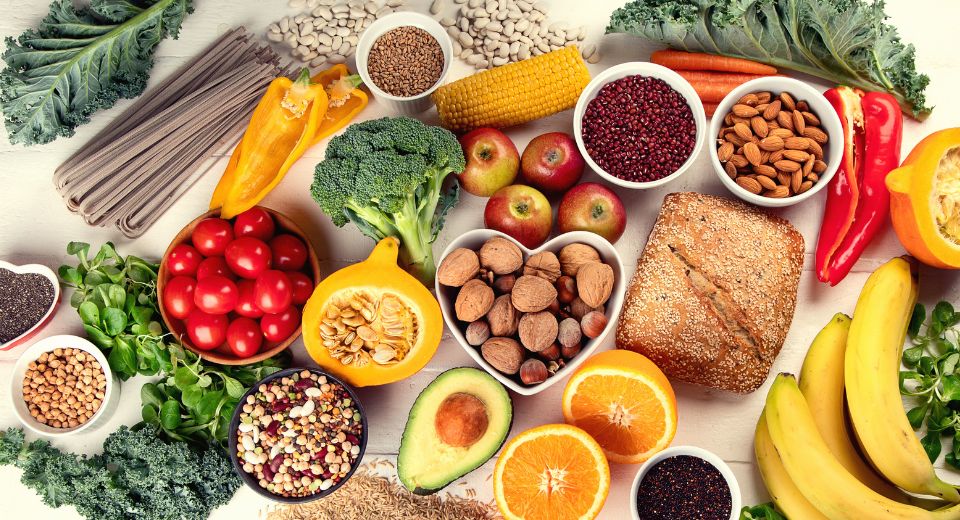
Author: Catherine Loomis, PA-C
What is fiber? Fiber is a type of carbohydrate that the body can’t digest. Fiber helps regulate the body’s use of sugars, helping to keep hunger and blood sugar in check. Fiber comes in two varieties, both beneficial to health: Soluble and insoluble fiber.
Soluble Fiber: Which dissolves in water, can help lower glucose levels as well as help lower blood cholesterol. Foods with soluble fiber include oatmeal, chia seeds, nuts, beans, lentils, apples, and blueberries.
Insoluble Fiber: Which does not dissolve in water, can help food move through your digestive system, promoting regularity and helping prevent constipation. Foods with insoluble fibers include whole wheat products (especially wheat bran), quinoa, brown rice, legumes, leafy greens like kale, almonds, walnuts, seeds, and fruits with edible skins like pears and apples.
Dietary fiber can offer the following benefits:
- Reducing cholesterol: Fiber in the digestive tract can help reduce the body’s cholesterol absorption, especially if you take statins and use fiber supplements, such as psyllium fiber.
- Promoting a healthy weight: High fiber foods like fruits and vegetables tend to be lower in calories. Fiber can also slow digestion to help you feel fuller for longer.
- Preventing constipation: Fiber can speed up digestion and prevent constipation. Insoluble fiber adds bulk to the digestive tract, as your body doesn’t digest it. This stimulates the intestines.
- Managing blood sugar: The body takes longer to break down high fiber foods, which means glucose does not enter the bloodstream so quickly. This helps you maintain more consistent blood sugar levels.
- Reducing cancer risk: Eating enough fiber may help prevent certain cancers, including colon cancer. One reason may be that some types of fiber, such as the pectin in apples, may have antioxidant properties.
If you’re adding high-fiber foods to your diet, do so gradually over a few days and drink plenty of water, too. This can help prevent adverse effects, such as bloating and gas.
Lentils, pears, celery, leafy greens, and oatmeal are all high in fiber. Fiber is an important nutrient that may promote weight loss, lower blood sugar levels, and fight constipation. The recommended daily intake is 25g for women and 38g for men, but most Americans don’t eat this much fiber.
The information provided is for general interest only and should not be misconstrued as a diagnosis, prognosis or treatment recommendation. This information does not in any way constitute the practice of medicine, or any other health care profession. Readers are directed to consult their health care provider regarding their specific health situation. Marque Medical is not liable for any action taken by a reader based upon this information.

